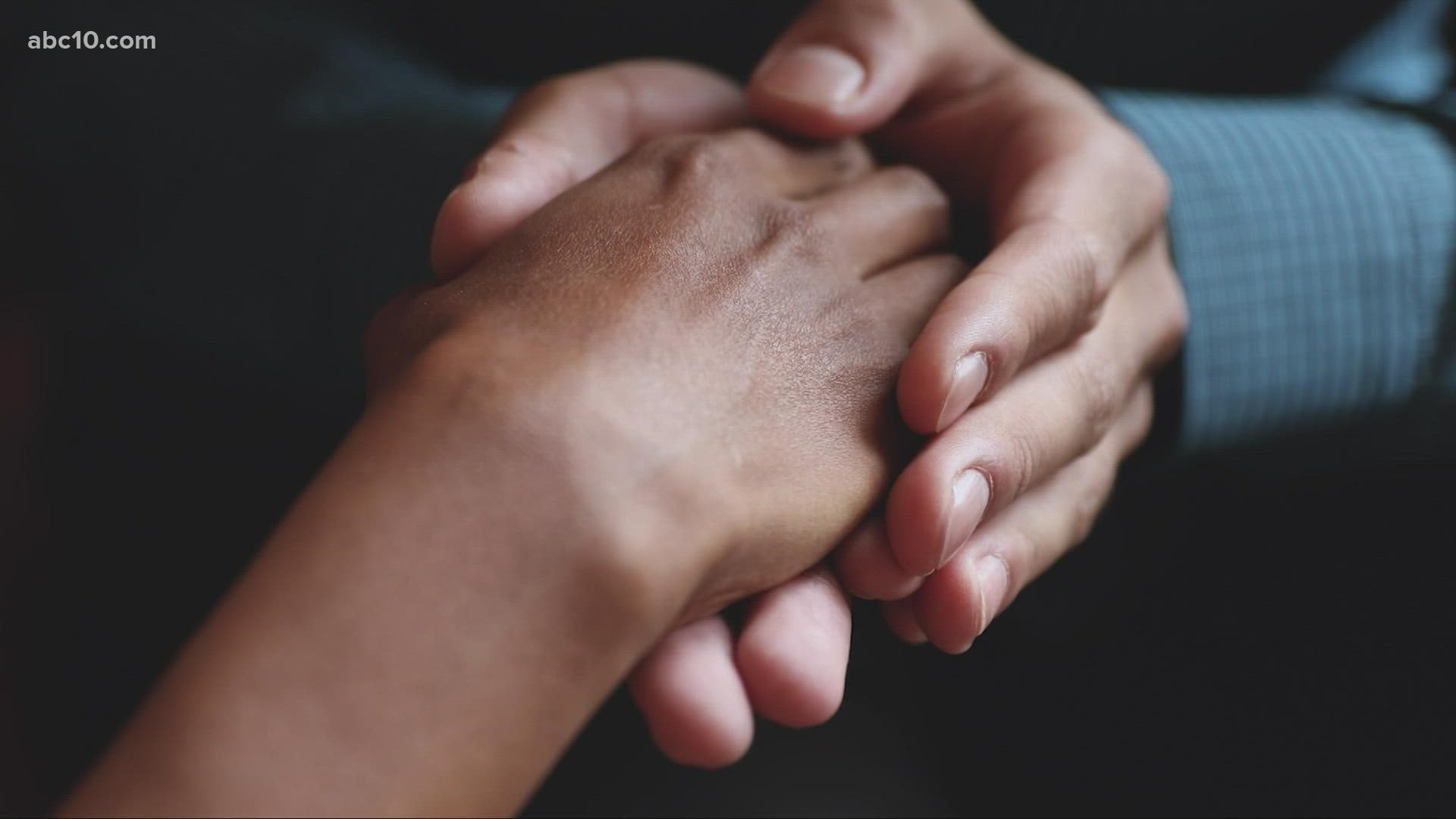SACRAMENTO, Calif. —
The Caldor Fire has directly affected more than 53,000 people who have been forced to evacuate their homes across three different counties in California — El Dorado, Amador, and Alpine.
Uncertainty, anxiety, and fear can be common for people who have been impacted by wildfires, according to the Substance Abuse and Mental Health Services Administration (SAMHSA). Dr. Angela Drake, a clinical psychologist at UC Davis Health, provides mental health advice for wildfire survivors.
Monitor how you’re feeling after a traumatic event
The Caldor Fire is a “significant traumatic event” that is also compounded by the pandemic, Dr. Angela Drake explained. There’s a lot to be stressed out about.
“One of the things that I really want to encourage people to do is monitor for increased symptoms of anxiety, [and that could look like] sleep problems [or] indigestion. Believe it or not, anxiety affects your entire body,” Dr. Drake said.
Common signs of distress according to the Centers for Disease Control and Prevention:
Feelings of fear, anger, sadness, worry, numbness, or frustration
Changes in appetite, energy, and activity levels
Difficulty concentrating and making decisions
Difficulty sleeping or nightmares
Physical reactions, such as headaches, body pains, stomach problems, and skin rashes
Worsening of chronic health problems
Increased use of alcohol, tobacco, or other drugs
Find ways to take care of yourself during difficult times
Dr. Drake wholeheartedly encourages self-care during difficult times like these, and that looks different for everyone. So, what does that even mean?
“I wish I had a simple answer for you. Self-care can mean anything that you want it to mean,” she said. “But the goal is that it helps you function better in your daily life, and cope more strongly or effectively with the stressors in your life.”
Finding ways to help renew your energy level is important, Dr. Drake says. For some, that is keeping busy and for others that is slowing down. She mentioned that one of the easiest and most powerful grounding techniques is deep breathing — it helps manage intense emotions after a traumatic event.
The American Psychological Association created a tip sheet with effective ways to cope with your feelings, thoughts, and behaviors after recovering from a wildfire. Below you will find information from their page:
Give yourself time to adjust
Ask for support from people who care about you and who will listen to your concerns
Turn it off and take a break
Find out about local support groups that are available for those who have suffered as a result of the wildfires
Engage in healthy behaviors to enhance your ability to cope with excessive stress
Establish or reestablish routines such as eating meals at regular times and following an exercise program
Avoid major life decisions such as switching jobs, making large purchases, or making sudden changes in your relationships
In traumatic situations where anxiety can be escalated, Dr. Angela Drake highly recommends creating a support system for yourself.
“There's a lot to be said about peer support groups, even informal peer support groups,” she said. Connecting with neighbors going through similar circumstances, joining online communities such as Facebook groups, or finding resources through the Red Cross are just some ways you can seek out support.
Intervening early can also be helpful in the long run and prevent people from heading into a “deep, hopeless, depression stage” or chronic illness, according to Dr. Angela Drake.
Seek professional help if you need it
If there are consistent changes in someone’s functioning — can't get out of bed, not eating, crying all the time, feeling hopeless, or family members are concerned about the person — Dr. Angela Drake said it is important to seek professional help early.
SAMHSA’s Disaster Distress Helpline: The helpline provides 24/7 crisis counseling and support to people experiencing emotional distress related to natural or human-caused disasters. People can call or text, 1-800-985-5990, to connect with a trained crisis counselor.
Red Cross Disaster Mental Health: The Red Cross provides support to people recovering from wildfires by connecting them with licensed professionals who volunteer their time and expertise.
Mental health resources by County: If someone is seeking mental health services or information, they can contact their local County Mental Health program.
Health Insurance: Individuals with health insurance can also call the toll-free numbers on the back of their insurance cards to learn how to access mental health services through insurance coverage.
Find your local NAMI affiliate: The National Alliance on Mental Health (NAMI) provides free resources to help people navigate their personal situations.
If you or someone you know is in crisis and needs help, you can call the National Suicide Prevention Lifeline at 1-800-273-8255. Calls are free, confidential, and can be made 24 hours a day, 7 days a week.
Watch More:

